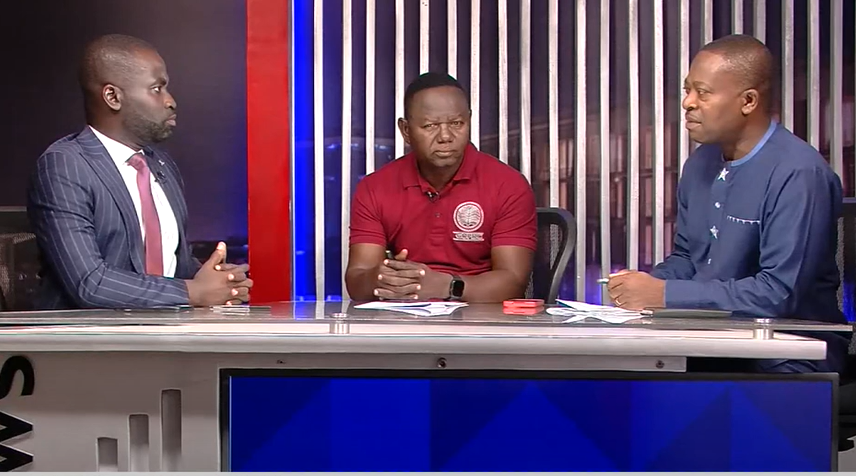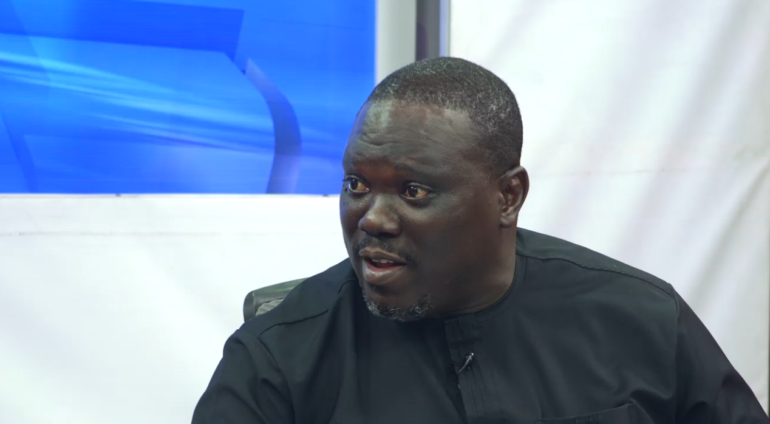An economist, Prof Ebo Turkson, has expressed strong reservations about the Trade and Industry Ministry's proposed Legislative Instrument (LI) on Export and Import, particularly emphasizing concerns regarding the restriction of selected strategic products.
Speaking on JoyNews’ PM Express, the economist questioned the rationale behind the policy, drawing a historical parallel, where during the era of Ghana’s first President, Dr. Kwame Nkrumah's import substitution industrialisation, where import restrictions were implemented and failed.
According to Prof Turkson such policies should be accompanied by robust support for domestic firms to enhance their capacity.
“It is totally unnecessary. It should not be a policy that should be supported at all. As for import restrictions, it's okay. We need to make sure that we domesticate our consumption. But this has to be data-driven,” he said.

He pointed out a crucial aspect of the issue by stating that Ghana currently faces a situation where local poultry farmers produce only 5 percent of the demand.
Despite the efforts to support local producers, he noted it would take time for production to improve significantly.
In light of this, Prof Turkson questioned the wisdom of imposing restrictions when both locally produced and imported goods are insufficient to meet the demand.
The economist stressed the importance of a comprehensive, data-driven approach to guide policy decisions.
He suggested that any move towards import restrictions should be thoroughly informed by an understanding of the current production capacity and the ability of domestic industries to meet consumer demand.
On Monday, the Trade and Industry Minister, K.T. Hammond, laid before Parliament an improved version of the LI after it was blocked last week over the lack of quorum and consultation.
The LI will compel importers of 22 restricted items, including poultry, rice, sugar, diapers and animal intestines (Yemuadie) to seek licenses from a committee to be set up by the minister.
The Minority in Parliament has, on three occasions, resisted the laying of the LI on the ground that it was not only dangerous but violated international trade practices and could give too much power to the minister, a situation that has the propensity to breed corruption.
Latest Stories
-
Gold Fields Ghana Foundation challenges graduates to maximise benefits of community apprenticeship programme
1 hour -
GBC accuses Deputy Information Minister Sylvester Tetteh of demolishing its bungalow illegally
1 hour -
Boost for education as government commissions 80 projects
2 hours -
NAPO commissions library to honour Atta-Mills’ memory
2 hours -
OmniBSIC Bank champions health and wellness with thriving community walk
2 hours -
Kora Wearables unveils Neo: The Ultimate Smartwatch for Ghana’s tech-savvy and health-conscious users
2 hours -
NDC supports Dampare’s ‘no guns at polling stations’ directive
2 hours -
Police officer interdicted after video of assault goes viral
2 hours -
KNUST’s Prof. Reginald Annan named first African recipient of World Cancer Research Fund
2 hours -
George Twum-Barimah-Adu pledges inclusive cabinet with Minority and Majority leaders
3 hours -
Labourer jailed 5 years for inflicting cutlass wounds on businessman
3 hours -
Parliament urged to fast-track passage of Road Traffic Amendment Bill
3 hours -
Mr Daniel Kofi Asante aka Electrician
3 hours -
Minerals Commission, Solidaridad unveils forum to tackle child labour in mining sector
3 hours -
Election 2024: Engagement with security services productive – NDC
3 hours

